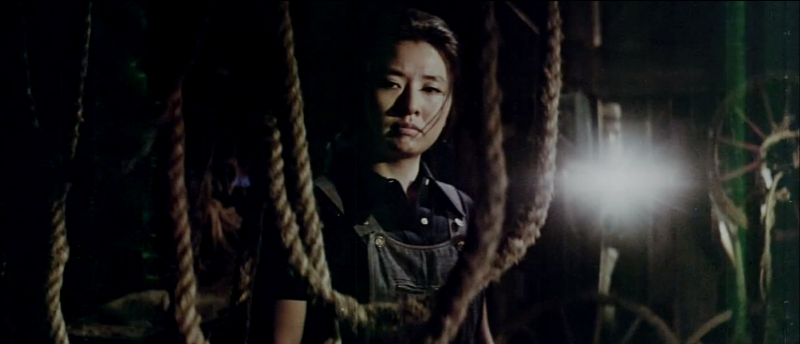Director – Kim Ki-young – 1971 – South Korea – Cert. 18 – 98m
*****
A married couple’s housemaid seduces the husband, ensnaring him in a love triangle from which there is no escape – 4K Restoration played at the London East Asia Film Festival (LEAFF) (European Premiere) and screens again 6.30 at the ICA on Friday, November 5th book here as part of a strand dedicated to actress Youn Yuh-jung (Best Supporting Actress, Minari) at the London Korean Film Festival (LKFF) which runs from Thursday, November 4th to Friday, November 19th
Kim Ki-young is probably better known for his breakthrough film The Housemaid (1960) than any other title. Not only did the film establish him as a maker of dark films about twisted relationships, it also inaugurated something of his trademark style. While a real watershed in Korean cinema generally and Kim’s career in particular, the material was something he felt he could do a lot more with: he remade it directly not once but twice as Woman Of Fire (1971) and Woman Of Fire ‘82 (1982). Where the highly effective original was shot in both black and white and the old 4:3 Academy format, the two remakes like many of his later films were both colour and scope, and made full use of both, giving them additional qualities lacking in the original.
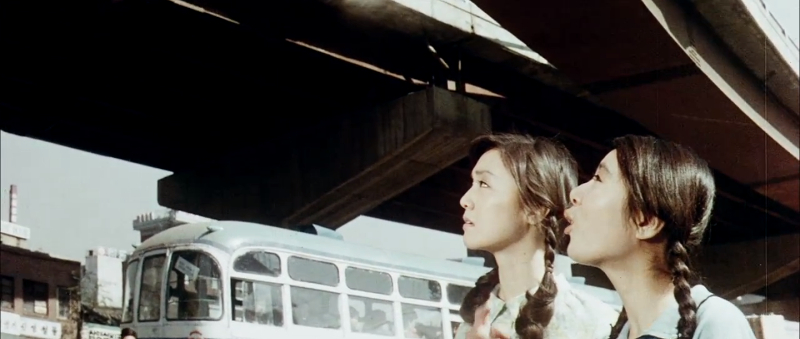
The plot in the 1960 version involves a couple hiring a girl recently arrived in the big city from the countryside as a maid. A social climber, she immediately sets about seducing the husband. It doesn’t end well. Woman Of Fire reruns the scenario, with the wife of the couple now owning and operating a chicken farm. Some rather confusing footage shows that life in the countryside can be pretty hard, as witnessed by the girl’s rape by one of the local young men, who she fends off by hitting his head with a large stone.
Fairly soon after taking up her position in the city as maid, she startles the wife by pulling a live rat out of a kitchen cupboard and squashing it dead on the floor under her shoe. Despite being perfectly happy to slaughter chickens and put them into the mincing machine, the wife has an aversion to handling never mind killing vermin, and since the housemaid has proved herself so adept at dealing with them, the wife leaves her to get rid of them, although she warns against using rat poison because the chickens – or worse, the kids – might eat it.
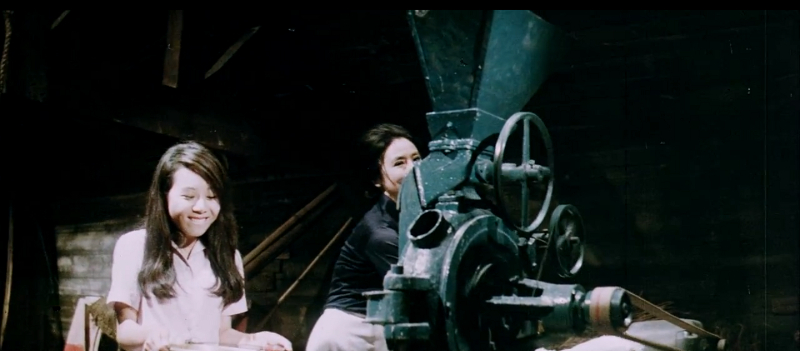
The maid witnesses the couple’s naked bodies writhe behind frosted glass as the wife’s hand presses against its surface. [Later, when the wife loses her shoe in a gutter, her splayed hand reaches towards the camera in a gesture reminiscent of a hand reaching for help in the shower murder of Psycho (Alfred Hitchcock, 1960)]
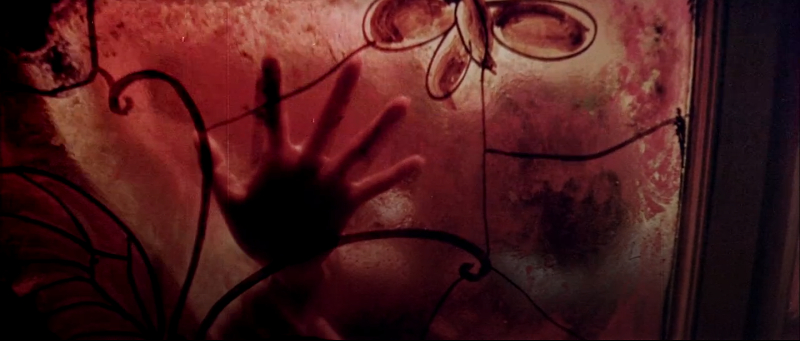
When the wife goes away for a few days, she entrusts the wife with keeping an eye on her husband, a songwriter often in the company of female singers. The wife gives the maid carte blanche in her dealings with the singers, including the option of killing any who try it on. The drunken husband, a weak-willed specimen who talks about being faithful to his wife then, having got that verbally out of his system, is all over one singer in the living room. The maid ends up expelling her but then assumes the singer’s identity when the husband calls her by name, resulting in his getting her pregnant.
The rat poison is used by various characters on far more than rats. At one point the husband notices and tells the maid, now his lover, that his soup tastes a little sweeter than usual. This is because the maid has replaced rat poison in its containers with sugar just in case the wife attempted to poison any food intended for either her cheating husband or the maid herself.
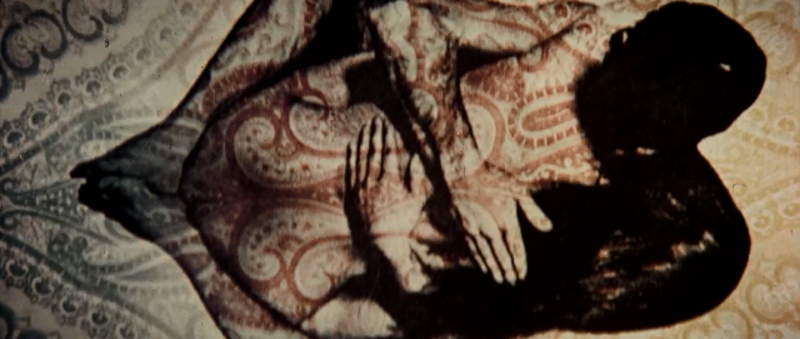
There’s also a murder in which a fragment of a broken bowl is plunged into a man’s head, resulting in a corpse requiring disposal (or has someone got rid of it already – it’s hard to follow at times) which is where either the maid or the wife might find another use for the mincing machine normally used on chickens. Meanwhile, the police suspect something and are searching the area immediately around the premises. You might think this implies that narrative is not Kim’s strong point, but although his storytelling can at times be confusing, he is brilliant at disorienting the audience and ratcheting up the tension.
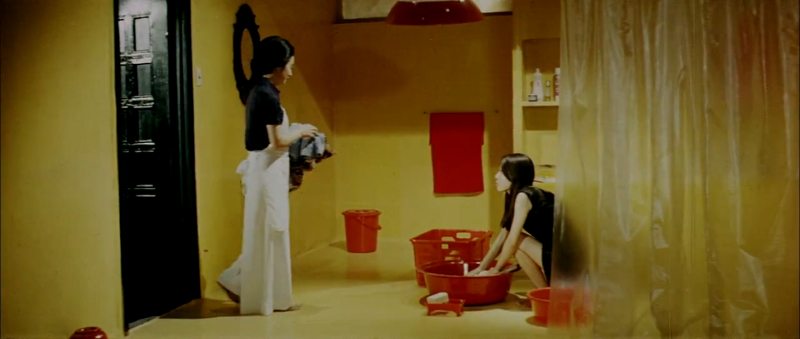
Kim’s visuals are something else again. He takes something like a maid using a bucket and cloth to clean a bathroom floor and turns it into lurid colours – black dresses against bright yellow floors and walls with buckets, baskets, towel and light shade all bright red. The closing sequence in the pouring rain beside a towering concrete wall where the stressed wife, in a white dress, collapses and loses her shoe as the rainwater washes it down the guttering clearly inspired Parasite (Bong Joon Ho has expressed his admiration for Kim’s films) with its journey in torrential rain from the wealthy top of the town to its flooded, impoverished lower depths.
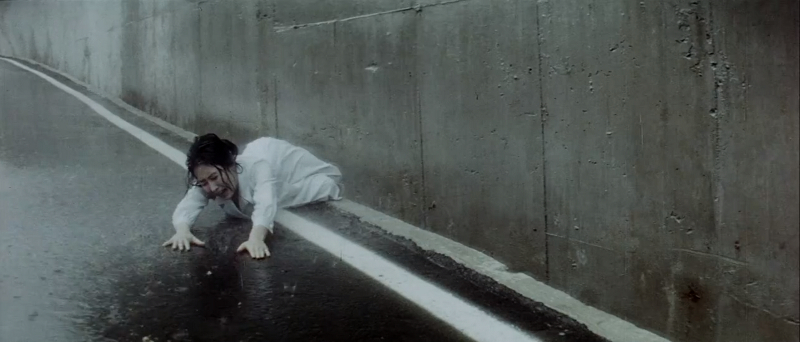
A further element that makes this particular movie a good place to start exploring Kim’s filmography at the present time is that actress Youn Yuh-jung who plays Woman Of Fire’s housemaid and also appears in Kim’s Insect Woman (1972, available for free on the Korean Film Archive YouTube Channel) is currently a very high profile figure having picked up the Best Supporting Actress at last year’s Oscars for her role as the grandmother in Minari (Lee Isaac Chung, 2020). She can also be seen in a number of other films this year on the big screen at the London Korean Film Festival, in two films in MUBI’s current New South Korean Cinema season while a number of her other films are available elsewhere (see below). Woman Of Fire is Youn’s screen debut, and she gives all she’s got to the role of the scheming, social climber trying to steal the man of the house from his wife. An absolute must-see.
More on Kim Ki-young: Death Desire And Rat Poison.
The restored version of Woman Of Fire played in LEAFF, the London East Asia Film Festival (European Premiere).
If you missed it, the restoration screens again 6.30 at the ICA on Friday, November 5th book here as part of a strand dedicated to actress Youn Yuh-jung (Best Supporting Actress, Minari) at London Korean Film Festival (LKFF) which runs from Thursday, November 4th to Friday, November 19th.
Trailer (Woman Of Fire – short):
Trailer (Woman Of Fire – long):
Youn Yuh-jung films currently or recently available…
LKFF (London Korean Film Festival): Woman Of Fire (Kim Ki-young, 1971), The Bacchus Lady (Lee Je-Yong, 2016), Canola (Chang, 2016), Ladies Of The Forest, Kim Cho-hee, 2016)
Three films by Im Sang-soo: A Good Lawyer’s Wife (2003), The Housemaid (2010), Heaven: To The Land Of Happiness (2021)
Korean Film Archive YouTube Channel (free): Insect Woman (Kim Ki-young, 1972)
MUBI (in New South Korean Cinema season): The Bacchus Lady (Lee Je-Yong, 2016), Lucky Chan-sil (Kim Cho-hee, 2019)
BFI Player: The Housemaid (Im Sang-soo, 2010)
Curzon Home Cinema: Beasts Clawing At Straws (Kim Yong-hoon, 2020)
Other major platforms: Beasts Clawing At Straws (Kim Yong-hoon, 2020), Minari (Lee Isaac Chung, 2020) 2020/2021 Best Supporting Actress Oscar
